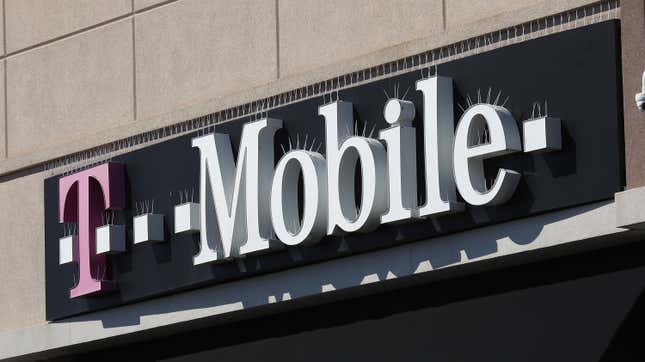
T-Mobile insisted that its dreaded $26.5 billion merger with rival Sprint was all about job creation, saying the two companies would have 11,000 more employees by 2024 than they were expected to as separate entities. But now that the deal’s closed, hundreds of former Sprint employees working under the merged brand will be terminated, TechCrunch reported on Tuesday.
TechCrunch wrote that in audio of a brief conference call on Monday, T-Mobile vice president James Kirby said that Sprint’s entire inside sales unit (BISO), which sells to small businesses, would be slashed. He wasn’t clear on the total number of employees who would lose their jobs, but said it would clear the way for at least 200 new positions. Kirby said laid off staff could apply for the new roles through T-Mobile’s careers website and that some staff may transition to new roles, according to TechCrunch, though “carriers don’t appear to have done much to facilitate the moves beyond encouraging staff to apply.”
TechCrunch also reported that the six-minute call was just one of several that T-Mobile executives made to tell Sprint employees they were no longer needed.
Kirby said during the call that employees will retain their jobs until August 13, lining up with the minimum notification timeline allowed by the WARN Act, which requires employers notify workers of mass layoffs 60 days in advance. The layoffs follow T-Mobile and Sprint clearing regulatory approval for the deal by just a few months.
One person told TechCrunch that the layoffs weren’t limited to BISO: “They cut people from every division, but BISO seems to have been hit the hardest.” Another told the site that the company had failed to “acknowledge the pain they are putting people through during a pandemic—severance package or not.”
Similarly to what research indicates about companies’ promises of lower prices after mergers—the exact opposite happens due to concentrated market power—evidence generally indicates that mergers and acquisitions tend to result in job cuts as corporations chase higher stock prices. State attorneys general had attempted to block the merger, citing research that it could raise prices for consumers by $4.5 billion annually, but Department of Justice and Federal Communications Commission greenlit it last year and the AGs lost the case. Federal antitrust enforcers are generally unable to intervene in mergers on the grounds of job loss, instead focusing on consumer prices.
The Communications Workers of America labor union has said that contrary to T-Mobile’s promises, it estimates the shutting down of “duplicative retail stores” and consolidated headquarters functions would affect up to 30,000 workers for either company. In February 2020, the National Wireless Independent Dealer Association said it estimated layoffs from the merger could ultimately hit 24,000 employees.